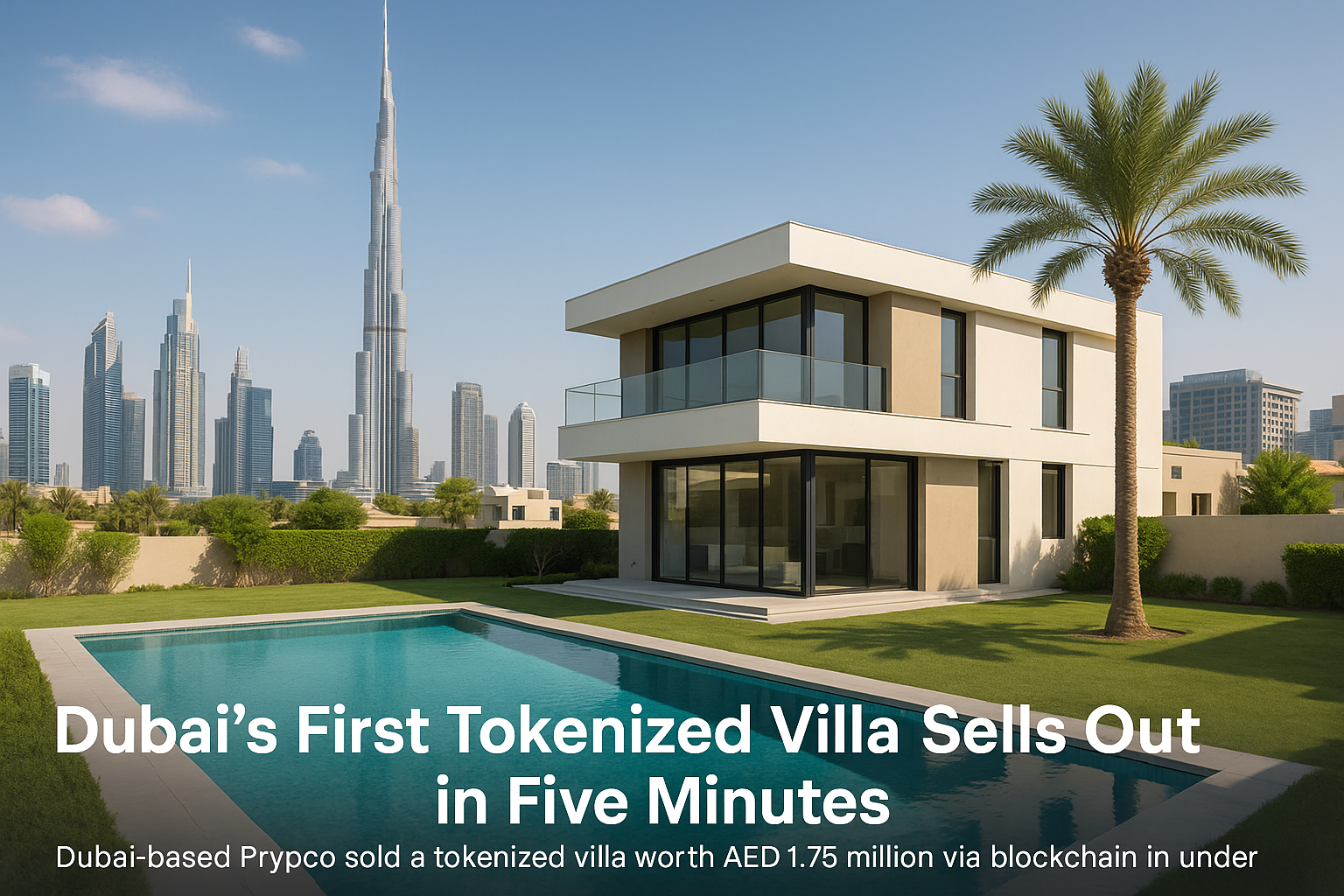In a groundbreaking move that signals the future of real estate investment, Dubai-based property platform Prypco has successfully sold its first tokenized villa—valued at AED 1.75 million (approx. $476,000)—in under five minutes. This isn’t just a record-setting sale; it’s a clear milestone in the global evolution of tokenized real-world assets (RWA), and a powerful showcase of how blockchain technology is reshaping traditional property ownership.
From Luxury to Ledger: What Happened?
The villa, located in one of Dubai’s premium residential zones, wasn’t sold the traditional way. Instead of full ownership being transferred to one buyer, Prypco broke it into fractional digital shares, or tokens, allowing multiple investors from around the world to own a stake in the property. These tokens, secured on the blockchain, represent legal, enforceable ownership, with rights to revenue and asset appreciation.
Once listed, all shares were snapped up in less than 300 seconds, proving both the global demand for digital property assets and the efficiency of tokenized transactions. This type of sale bypasses many of the hurdles of real estate—lengthy paperwork, bank processes, cross-border restrictions—by allowing seamless blockchain settlement and KYC-verified participation.
Why It Matters: Beyond Dubai’s Skyline
Tokenization isn’t just a technological gimmick. It solves real problems:
-
Accessibility: Anyone can invest in high-end real estate with a fraction of the capital.
-
Liquidity: Unlike traditional property, tokens can be traded peer-to-peer or via secondary markets.
-
Transparency & Security: Blockchain provides an immutable ledger of ownership and transactions.
-
Global Reach: Investors from Europe, Asia, and the Americas can all co-own a Dubai villa, instantly and legally.
Prypco’s success showcases Dubai’s role as a sandbox for real-world innovation—backed by progressive regulation, digital-forward infrastructure, and a global investor base.
Real Estate Tokenization Is Just Beginning
This five-minute sellout isn’t a one-off. It signals a structural shift: real estate, traditionally illiquid and exclusive, is being digitized and democratized. Imagine entire portfolios of villas, offices, and commercial properties being split into tokens—where users invest, earn rental income, or trade, all via apps on their phones.
Major players—from institutional investors to DeFi innovators—are now watching. With regulations maturing across the UAE and beyond, tokenized real estate could become a trillion-dollar asset class over the next decade.




